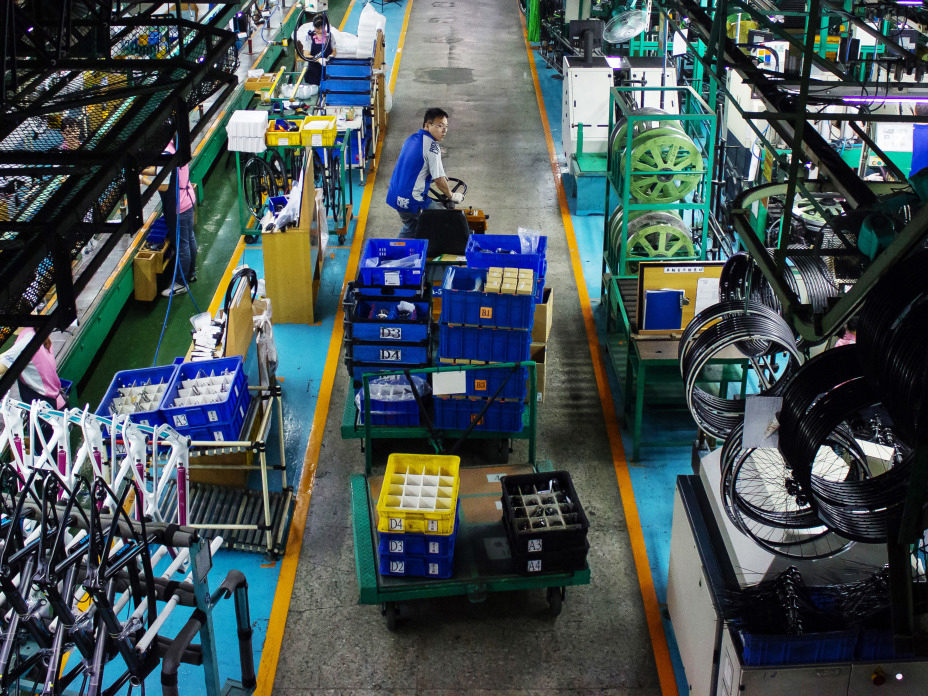
Think Tank
When Shifting Production From China Isn’t an Option

It’s the obvious solution for avoiding the squeeze of a mounting U.S.-China trade dispute: move production to other East Asian nations.
Some companies have already picked up stakes and moved manufacturing to other locations in Asia. For many others, however, this is not a viable option.
The achievement of parity in manufacturing capability, expertise, and infrastructure is no easy task. Other countries in the region are far less developed than China when it comes to global supply-chain readiness. Those possessing the necessary infrastructure can’t accommodate the additional demand. Shifts in production can also raise issues of increased supply-chain risk, such as unfair labor practices.
As shippers enter the throes of peak-season planning, many are seeking ways to mitigate their exposure to tariffs. Here are some possible solutions.
The “pulling-forward” approach. A number of customers are taking delivery now of imported goods that would otherwise be delivered later in the year. The pull-forward effect is occurring across a number of import segments, as shippers race to avoid the impact of threatened tariffs on Chinese goods. According to the National Retail Federation, U.S. retailers are expected to continue importing goods from China at “unusually high levels” throughout the summer. One large electronics retailer received more goods in a two-week period in February of this year than it did during the entire 2018 peak season.
Changing terms on purchase orders. Another way in which companies are avoiding surging costs is to the change terms on POs so as not to take ownership of the product until it hits the dock of their distribution center. This puts the onus on the vendor to absorb the tariff cost.
Shipping into bonded U.S. warehouses. A major electronics manufacturer is mitigating the impact of tariffs by shipping product into bonded warehouses, where imported goods can be stored without payment being immediately due. Duties are levied only when the goods are removed from the building. These facilities can be used to manage cash flow by spreading duties over time. Alternatively, users can pay lower rates if tariffs are reduced at a later date.
Taking advantage of tariff-remedy programs. Though frequently underutilized by importers, tariff remedy programs do exist. They include the Section 301 Exclusion Process, by which shippers can apply to have their goods continue to enter the country duty-free. The U.S. Trade Representative (USTR) published Federal Register Notice 84 FR 21389 in May, outlining the decision to grant a fourth round of exclusion requests from the 25-percent duty assessed under the Section 301 investigation related to goods from China.
There’s no denying that the ongoing trade dispute with China is challenging U.S. companies, and it doesn’t appear to be letting up anytime soon. Reports indicate that the office of the USTR has been flooded with pleas from companies urging the Trump administration to back down, citing a lack of sourcing options outside of China, and the growing negative impact to their bottom lines. President Trump has also threatened to levy tariffs on Mexican goods, which would pose yet another supply-chain challenge to U.S.-based companies. As the disruption caused by tariffs persists, shippers need a flexible strategy for managing both short- and long-term impacts to their businesses.
They need not go it alone. Third-party logistics providers can help to develop customized services that fit the unique needs of complex supply chains. Outsourcing logistics and supply-chain services is another option, allowing the shipper to focus on its core business. A trusted 3PL partner can provide logistics experts, access to carrier capacity, and specialized technology to proactively manage shipments. It can also help collect data that drives business intelligence and real-time decision-making, while providing a “control tower” view of the shipper’s transportation. Whichever solution you choose, now is the time take strategic action and future-proof your supply chain.
Ross Spanier is Senior Vice President of Sales and Solutions at GlobalTranz.






